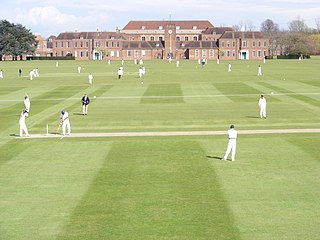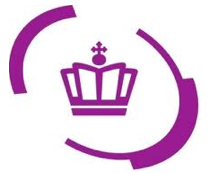Related Research Articles

Private schools in the United Kingdom charge fees to parents for access. Some have financial endowments, most are governed by a board of governors, and are owned by a mixture of corporations, trusts and private individuals. They are independent of many of the regulations and conditions that apply to state-funded schools. For example, the schools do not have to follow the National Curriculum, although many such schools do.

The Quality Assurance Agency for Higher Education, usually referred to simply as the Quality Assurance Agency or QAA, is the UK higher education sector's independent expert quality body, with a remit to maintain and enhance the quality of teaching and learning in tertiary education in the UK and beyond. It conducts quality assessment reviews, develops reference points and guidance for providers, and conducts or commissions research on relevant issues.

The Philippine Accrediting Association of Schools, Colleges and Universities (PAASCU) is a private, voluntary, non-profit and non-stock corporation which was registered with the Securities and Exchange Commission of the Philippines. It is a service organization that accredits academic programs which meet commonly accepted standards of quality education.

Private universities and private colleges are institutions of higher education that are not operated, owned, or institutionally funded by governments. They may receive tax breaks, public student loans, and grants from governments. Depending on their location, private universities may be subject to government regulation. Private universities may be contrasted with public universities and national universities. Many private universities are nonprofit organizations.
The European Association for Quality Assurance in Higher Education (ENQA), formerly the European Network for Quality Assurance in Higher Education, was established as an organization to represent quality assurance and accreditation organisations from the European Higher Education Area and internationally.

The Council for Higher Education Accreditation (CHEA) is a United States organization of degree-granting colleges and universities. It identifies its purpose as providing national advocacy for academic quality through accreditation in order to certify the quality of higher education accrediting organizations, including regional, faith-based, private, career, and programmatic accrediting organizations.
An online degree is an academic degree that can be earned primarily or entirely through the use of an Internet-connected computer, rather than attending college in a traditional campus setting. Improvements in technology, the increasing use of the Internet worldwide, and the need for people to have flexible school schedules while they are working have led to a proliferation of online colleges that award associate, bachelor's, master's, and doctoral degrees.
The Independent Schools Inspectorate (ISI) is approved by the Secretary of State for Education – under section 106 of the Education and Skills Act 2008 – to inspect private schools in England. These schools are members of associations, which form the Independent Schools Council.

The Accreditation Council for Business Schools and Programs (ACBSP), formerly the Association of Collegiate Business Schools and Programs, is a U.S. organization offering accreditation services to business programs focused on teaching and learning.
The name Warnborough is associated with several related institutions of higher education existing from 1973 to the present, including Warnborough College Oxford, Warnborough College UK, Warnborough College Ireland and Warnborough University, some of which are no longer in operation. Warnborough College UK provides educational programmes both on-site in Canterbury, England, and by distance learning. Warnborough College Ireland offers distance-learning programmes from Ireland. Warnborough College has been the subject of multiple controveries relating to misrepresentation, education quality, legal and tax troubles, and eligibility to participate in government financial assistance.
The Accreditation Organisation of the Netherlands and Flanders is the independent educational accreditation organisation for higher education institutions in the Netherlands and Flanders. It was established by international treaty by the Dutch government and the Flemish government in Belgium, for the purpose of ensuring the quality of higher education in the Netherlands and Flanders by accrediting study programmes.

The Accreditation Service for International Schools, Colleges and Universities (ASIC) is a private educational agency based in the United Kingdom that accredits UK-based and international schools, universities, and other education providers.
Higher education accreditation is a type of quality assurance process under which services and operations of post-secondary educational institutions or programs are evaluated to determine if applicable standards are met. If standards are met, accredited status is granted by the agency.
CIFE is a professional association of English independent sixth-form colleges. It provides support to its member institutions and advice about GCE Advanced Level and university entrance to anyone who asks for it. CIFE's President is Alistair Cooke, Baron Lexden

The Danish Accreditation Institution was established by Danish law as an independent institution in 2007. The institution consists of two entities; the Accreditation Council, which serves as the decision-making authority, and Accreditation Institution, which serves as the accreditation operator. The Council makes decisions on the accreditation of all higher education study programmes in Denmark, both new and existing.
The Akkrediterungs-, Certifizierungs- und Qualitätssicherungs-Institut (ACQUIN) is a school accreditation system founded in the year 2001 as a consequence of the European Bologna process and the upcoming need for assuring the quality of newly introduced undergraduate and postgraduate degrees in Germany. ACQUIN is a member-based, non-profit organisation located in Bayreuth, Bavaria, Germany. The Institute operates under the licence of the German Accreditation Council and is thus empowered to award its quality seal to study programs which have successfully undergone accreditation. ACQUIN was reaccredited by the German Accreditation Council until 30 September 2011. ACQUIN operates internationally in several key regions, including the German-speaking European region, Middle and Eastern Europe and North Africa - Near and Middle East. Nowadays ACQUIN is an association of over 100 higher education institutions from Germany, Austria, Switzerland, Hungary and the United States of America. ACQUIN operates as a non-profit organisation which is financed through membership fees as well as through Higher Education Institutions for accreditation services provided.
Eurospeak Language School is an institution that specializes in English language training and cultural exchange. The school was founded in 1991 and is in Reading, United Kingdom. The founder of Eurospeak, Michael O'Brien, died in 2011. Eurospeak also has a "subsidiary" in Almaty, Kazakhstan. Each year, Eurospeak welcomes more than 1,349 students from over 71 nationalities. In May 2018, Eurospeak submitted a planning application to create new premises at Cumberland Place, Southampton. The planning application was approved, and Eurospeak Southampton opened in October 2018.
Peter WilliamsCBE is the former Chief Executive of the Quality Assurance Agency for Higher Education (QAA), and the current Honorary President of the British Accreditation Council for Independent Further and Higher Education (BAC). He was given a CBE for his services to higher education in 2009.
References
- ↑ "UK Border Agency | Student visitors". Ukba.homeoffice.gov.uk. 6 April 2013. Retrieved 17 August 2013.
- 1 2 "UK Government Web Archive". webarchive.nationalarchives.gov.uk. Retrieved 4 October 2023.
- ↑ "ENQA - Detail View". Enqa.eu. Archived from the original on 4 December 2013. Retrieved 2013-08-17.
- ↑ "Member profile". Inqaahe. 1 January 2013. Retrieved 17 August 2013.
- ↑ "Memorandum of Agreement concerning the collection and use of information" (PDF). Qaa.ac.uk. Retrieved 5 March 2014.
- ↑ "ASAC - About us - British Council - Accreditation". British Council. Archived from the original on 4 June 2013. Retrieved 2013-08-17.
- ↑ "Bac British Accreditation Council | Fab Stakeholders". Awarding.org.uk. Archived from the original on 5 March 2014. Retrieved 17 August 2013.
- ↑ Matthews, David (5 April 2012). "College principal cheated Herts and students | General". Times Higher Education. Retrieved 17 August 2013.
- ↑ "The Future of Higher Education (13th July 2011)". Publications.parliament.uk. Retrieved 17 August 2013.
- ↑ "Our work in education and society". British Council. Archived from the original on 6 May 2010. Retrieved 5 March 2014.
- ↑ "Kosova Accreditation Project Report : July 2008" (PDF). Erisee.org. Archived from the original (PDF) on 15 March 2013. Retrieved 5 March 2014.
- ↑ "Statistics at BIS - GOV.UK". Bis.gov.uk. Retrieved 17 August 2013.
- ↑ "College Scheme Document" (PDF). The-bac.org. Archived from the original (PDF) on 7 June 2013. Retrieved 2014-03-05.
- ↑ "International Education News l The PIE News l BAC unveils accreditation for non-UK institutions". Thepienews.com. 3 October 2012. Retrieved 17 August 2013.
- ↑ "International higher education accreditation". BAC. Archived from the original on 10 August 2013. Retrieved 2013-08-17.
- ↑ "BAC launches new accreditation schemes". Hothousemedia.com. 11 October 2012. Retrieved 17 August 2013.
- ↑ "Accreditation Committee". BAC. Archived from the original on 10 August 2013. Retrieved 2013-08-17.